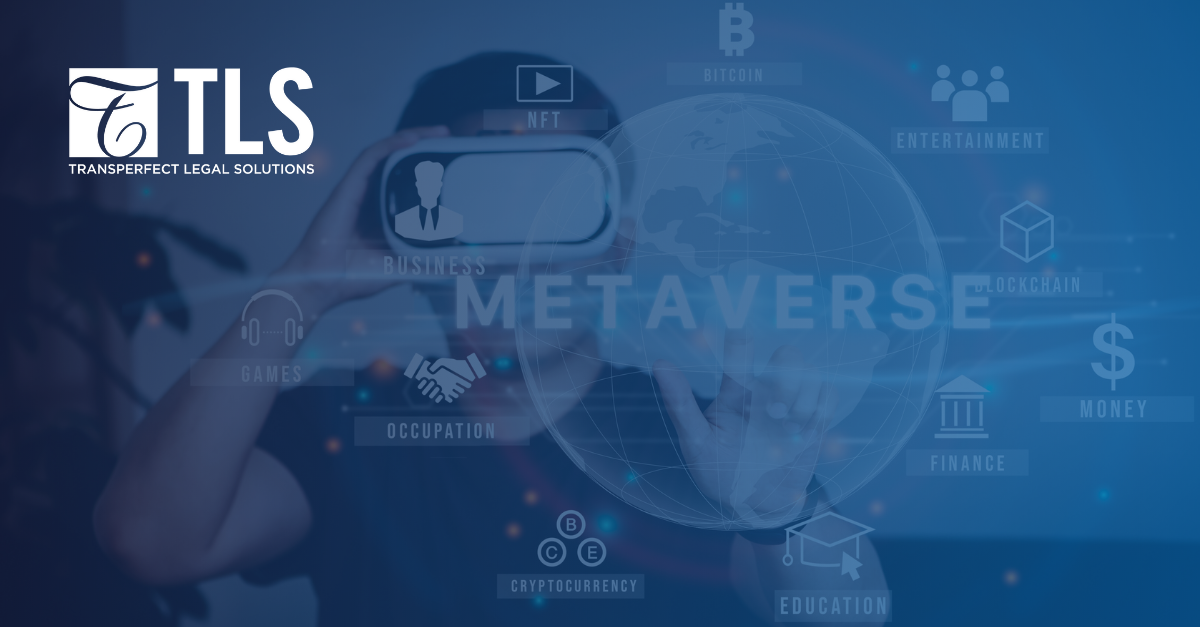Looking Ahead: Are we Ready for Depositions in the Metaverse?
Looking Ahead: Are we Ready for Depositions in the Metaverse?


For the past two years, approximately 95% of depositions have taken place online via Zoom, Teams, WebEx, and a host of other online video-conferencing platforms. Technical support became a primary job function for our entire team. Documents were initially printed and shipped across the country, but firms have now generally accepted the use of electronic marking and exhibit sharing.
Our office can count on two hands the number of transcripts we have physically printed and mailed in the past two years. Virtual depositions as well as countless hearings, trials, and arbitrations are today an accepted standard. Many attorneys have expressed the desire to never return to in-person depositions, while others have grumbled at anything electronic, begrudgingly participating out of sheer necessity.
Virtual depositions have their benefits. There is no travel required, saving law firms and corporate legal departments time and money. From a court reporter’s perspective, a virtual deposition means potentially handling multiple assignments in a day, since there is no longer the need to drive across town.
Court reporters, like so many other professionals, are no longer geographically restricted, with the ability to take assignments all over the country for states they are certified to work in, as well as international assignments that previously required additional time and expense. One attorney let me know he is only handling his depositions virtually now, because he just doesn’t want to sit in Los Angeles traffic anymore. Another said she’s happy to be able to have lunch from her own kitchen rather than a hurried sandwich eaten over her legal pad in the boardroom.
On the flip side, in-person depositions have their benefits. Most attorneys report that their normal intimidation tactics don’t have the same effect over the internet, but in person they are much more compelling. Some struggle to read body language or worry about witnesses being coached by someone off camera in a virtual setting. In short, taking depositions in person just feels better.
During a recent meeting, I met two attorneys who were set to take their first deposition ever, and it was remote. They were grateful for all the hours they had spent watching senior partners take remote depositions. Remote depositions have become an invaluable teaching tool for more junior attorneys because they can still experience a deposition without being a distraction to others in the room.
So, are we ready to take the virtual deposition one step further? The global pandemic and the advent of virtual proceedings felt like a “big leap for mankind” for an industry already hesitant to embrace new technology. Depositions and other similar proceedings have been handled the same way for the past 100 years, with the only real technological advancements being the equipment in the room. Now that we’ve changed the actual room, are we ready to change the entire experience? Will there be a new generation of lawyers handling their first depositions in the metaverse?
The metaverse is considered the next iteration of the internet and is estimated to be worth $6–10 trillion dollars by 2032. Seven of the world’s largest companies are already investing. Experts believe we aren’t that far away from the general population being familiar with and an active participant in the metaverse in our day-to-day lives. The goal is to experience content in an immersive way.
If you are an attorney or court reporter reading this article, your reaction is likely “absolutely not.” Had we asked about virtual depositions three years ago, you likely would have had the same reaction. I anticipate that the first interactions the legal community will have with the metaverse will be in education. Avatars can rehearse oral arguments in a virtual courtroom with the benefits of artificial intelligence and data analysis tools.
Realistically, we are a few years away from any official legal proceedings taking place in the metaverse. Admissibility, the regulation of law practice, and cybersecurity concerns are the first hurdles to overcome. Once we do that, the metaverse will become a way to combine the benefits and cost savings of remote proceedings with the in-person feel cultivated by virtual immersive experiences.